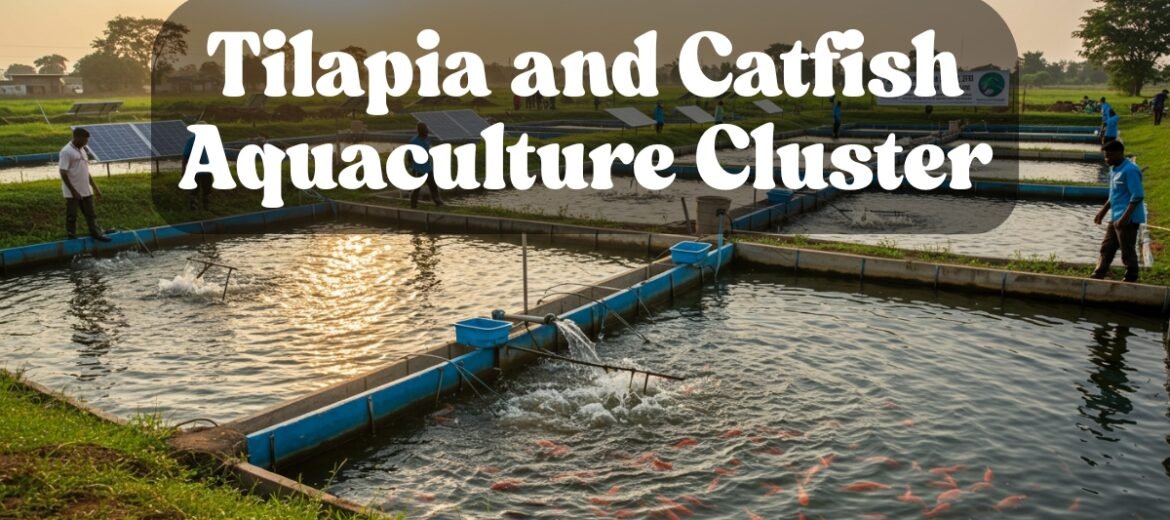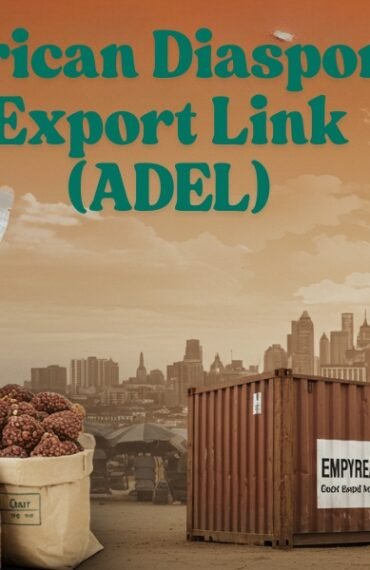
🌊 Introduction
In a country where malnutrition and unemployment remain pressing issues, Empyrean Cultures Ltd. is charting a bold course toward transformation. Through our Tilapia and Catfish Aquaculture Cluster Project, we aim to provide a sustainable, scalable solution that supports food security, empowers communities, and redefines aquaculture practices in Nigeria.
🐠 Background: Addressing the Protein Gap and Rural Livelihoods
Nigeria faces a significant protein deficiency, with millions lacking access to affordable, quality protein sources. The demand for fish has soared, yet local supply remains insufficient—leading to heavy reliance on imports.
The aquaculture sector presents a unique opportunity to bridge this gap, especially in rural and peri-urban areas where land and water bodies are underutilized. However, fragmented operations, poor knowledge, and lack of infrastructure have hampered its full potential.
🎯 Project Objectives
The Tilapia and Catfish Aquaculture Cluster is designed to:
Establish interconnected aquaculture units focused on high-yield tilapia and catfish farming.
Train and equip local youth and women with modern aquaculture techniques.
Increase local fish production to reduce import dependency.
Promote climate-smart aquaculture practices for long-term sustainability.
🔧 Implementation Strategy
Empyrean Cultures Ltd. deploys a cluster model that brings together smallholder fish farmers within a shared value chain. Key components include:
Pond construction and rehabilitation using geo-membrane liners for water efficiency.
Use of nutritionally balanced feeds and affordable fingerlings.
Capacity-building workshops on fish breeding, disease control, and marketing.
Linkages to cold chain logistics and urban markets through strategic partnerships.
Digital record-keeping systems for transparency and productivity tracking.
🌟 Project Impact
So far, the project has made measurable progress:
20 fish farming clusters established across 3 local government areas.
Over 200 individuals trained, including 60% women and youth.
An increase in fish yield by 150% compared to traditional methods.
Enhanced household incomes and improved access to protein-rich diets in beneficiary communities.
“Before the training, I lost most of my fish stock to disease. Now, I’m not only feeding my family with healthy fish—I’m also selling to restaurants in town,” — Amina Musa, Project Beneficiary.
🤝 Stakeholders and Collaboration
This initiative thrives on strong collaborations with:
Local farmer cooperatives and aquaculture extension agents
Agricultural development agencies
NGOs focused on food security and rural development
Financial partners providing micro-credit for startup clusters
🚧 Challenges and Lessons Learned
Initial challenges included poor water quality, limited technical knowledge, and access to affordable feed. Through targeted training, ongoing support, and innovation, these gaps are being addressed steadily.
We’ve learned that community ownership and peer mentorship are critical drivers of success.
🔭 Future Plans
Empyrean Cultures Ltd. is scaling the project by:
Launching mobile aquaculture units for urban fish farming.
Establishing a processing and packaging hub for value-added fish products.
Integrating solar-powered aeration systems to boost sustainability.
Our vision is to replicate this model nationwide—making Nigeria a leader in inland aquaculture.
✅ Conclusion
The Tilapia and Catfish Aquaculture Cluster stands as a testament to what’s possible when innovation meets purpose. By nourishing communities, creating jobs, and protecting our ecosystem, this project reimagines agriculture not just as a means of survival—but as a platform for prosperity.







